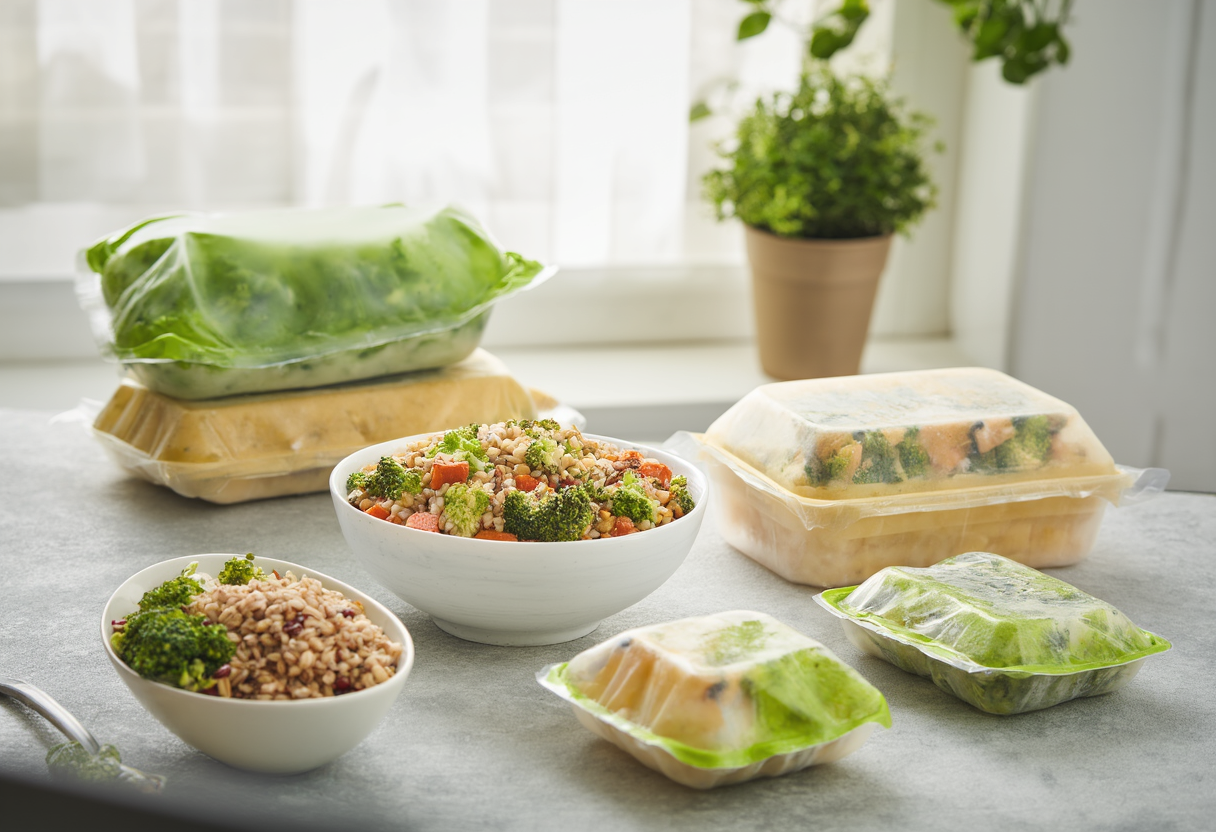Unlocking the Benefits of Organic Frozen Food: A Nutritional Revolution
Organic frozen food is reshaping our diets, offering health benefits, convenience, and sustainability. This article dives deep into its rising popularity, analyzing consumer trends, nutritional advantages, and the evolving perception of frozen meals in today's market.
The Nutritional Value of Organic Frozen Food
Organic frozen food has established itself as a staple in the modern kitchen, often credited with unparalleled nutritional benefits. Studies have shown that organic frozen fruits and vegetables often pack more vitamins than their conventional counterparts, thanks to rapid freezing techniques that lock in nutrients. Consumers are increasingly looking for ways to incorporate healthy options into their diets, making organic frozen food an attractive solution. Furthermore, these products often contain no added preservatives, enhancing their health appeal. In a world continually advocating for clean eating, the prominence of organic frozen food grows as consumer education leads them toward healthier choices. This empowers them to prioritize nutrition without the hassle of daily grocery shopping, making organic frozen food a leading option in many households.
Consumer Convenience: The Modern Need
The need for convenience is a driving force behind the popularity of organic frozen food. In an age where time is limited, busy individuals meet the challenge of meal preparation with frozen options that allow for quick and effortless cooking. With organic frozen food readily available, preparing wholesome meals becomes easier than ever. Consumers can simply reach into their freezers and access a range of dishes, from fruits and vegetables to complete meals. This ease of use has the potential to increase the consumption of healthy foods, combating the trend of fast-food reliance. Thus, organic frozen food not only caters to contemporary lifestyles but also supports better eating habits amongst busy populations.
Environmental Impact and Responsibility
The environmental implications of choosing organic frozen food are evident in various ways. Organic farming practices prioritize sustainability, and by selecting organic frozen options, consumers contribute to the protection of the environment. The approach significantly reduces waste, as frozen food can be kept for extended periods without spoiling. This aligns well with the increasing consumer demand for transparency regarding food sourcing and production. Sustainable practices in the organic frozen food industry are gradually gaining attention, allowing consumers to align their purchases with their values. By choosing organic frozen food, individuals take a step towards supporting a healthier planet while nourishing their bodies at the same time.
Revolutionizing Diets: Redefined Perceptions of Frozen Food
The revolution in the perception of frozen food has been significant, especially due to the advent of organic frozen food. Many people are beginning to recognize that frozen doesn't equate to unhealthy. Innovations in freezing technology and advances in food science have greatly improved the quality and flavor of frozen foods. As more people discover the satisfaction offered by organic frozen alternatives, the stigma surrounding frozen meals continues to diminish. Shoppers are increasingly willing to invest in higher-quality frozen options, viewing them as a viable solution for maintaining a healthy lifestyle. The shift in consumer attitudes ultimately helps boost the organic frozen food market, attracting diverse demographics to this once overlooked sector.
Affordability and Accessibility of Organic Frozen Food
One often overlooked aspect of organic frozen food is its affordability. Despite the common perception that organic options are significantly more expensive, frozen products often provide cost-effective solutions without compromising quality. Many people have discovered that buying organic frozen items can be advantageous, as they tend to have extended shelf lives. Thus, individuals and families can save money in the long run while enjoying fresh, organic flavors at home. Furthermore, regular discounts and promotions often make organic frozen food even more accessible, expanding its market reach. This dimension is crucial in democratizing healthy eating options that were previously seen as elitist or out of reach for many consumers.
In Conclusion: The Bright Future of Organic Frozen Food
In summary, organic frozen food is leading a nutritional revolution by providing health, convenience, and sustainability simultaneously. As consumer awareness grows and preferences shift, the market for organic frozen food is sure to expand. This multipronged approach enables healthier meals without the burdens of preparation, ideal for today’s lifestyle. With a focus on quality and environmental responsibility, organic frozen food not only benefits individual health but fosters a positive impact on the planet as well. Therefore, embracing organic frozen food may very well represent the future of food choices, revolutionizing how we think about frozen meals for years to come.
